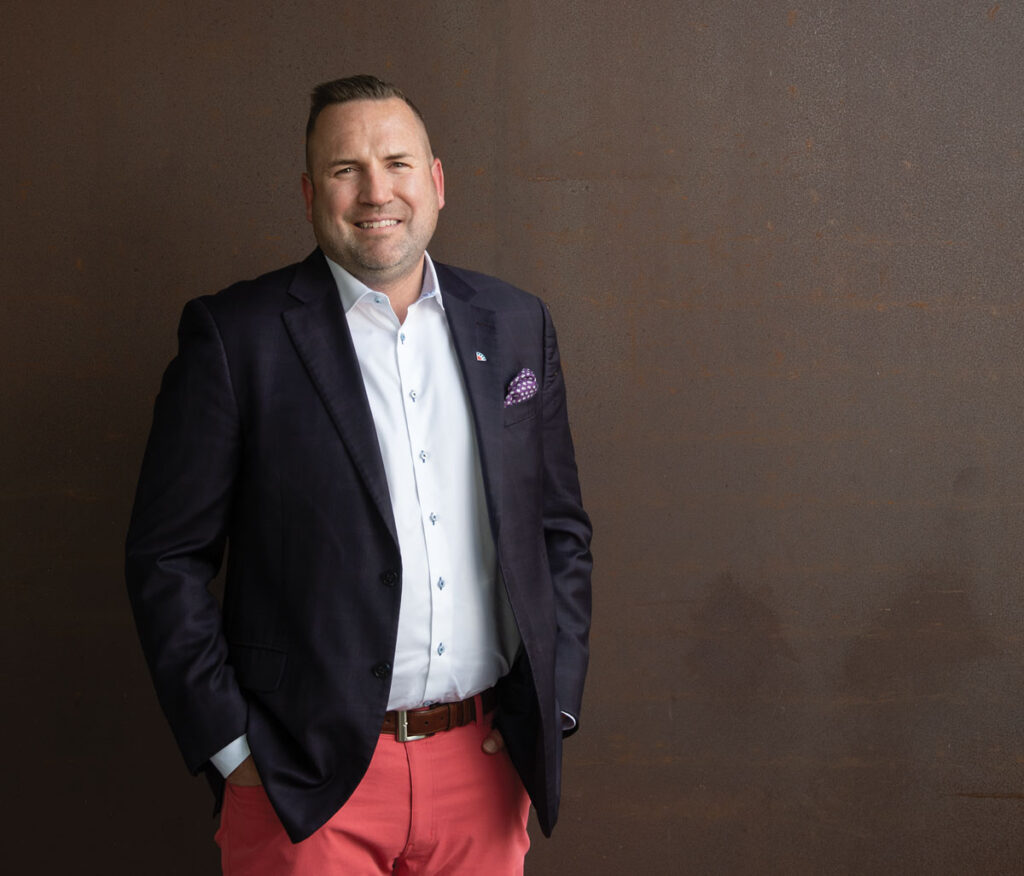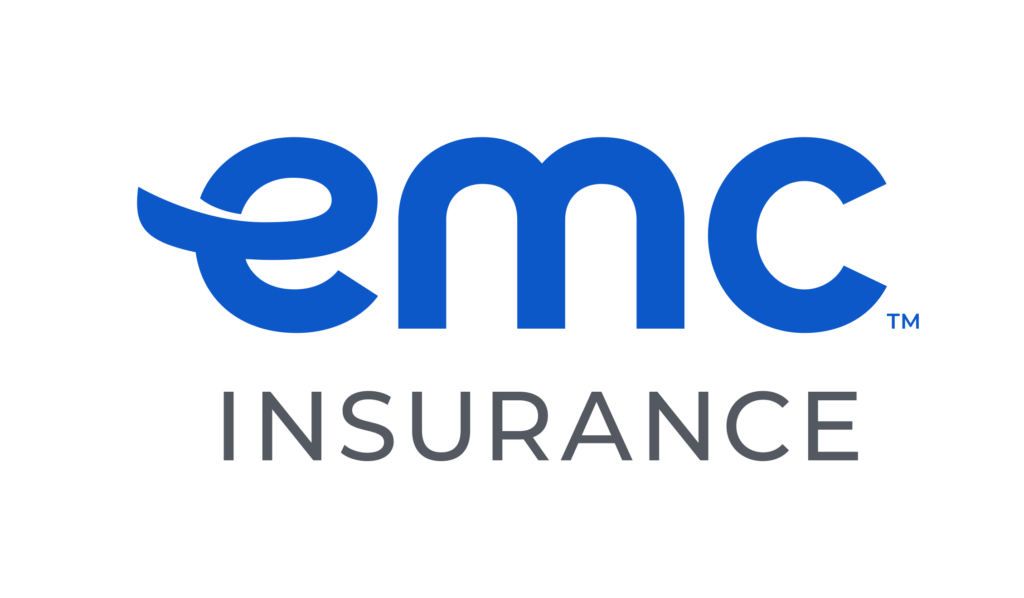Closer Look: John Hurley II
Take a closer look at the president of property casualty brokerage services, Holmes Murphy

John Hurley II has worked his entire career at Holmes Murphy, beginning as an intern the summer of 1990 before his senior year of college. He has steadily climbed the corporate ladder of the brokerage company, which during his tenure has grown from about 100 employees to 1,000. On July 1, he was promoted to the newly created position of president of property casualty brokerage services. Hurley has been in charge of Holmes Murphy’s property and casualty sales at the enterprise level since early 2016, and in that position has led the transition to a standardized sales approach and the development of a new proprietary sales and service platform called Understanding ART. That system’s not about appreciating fine paintings and sculpture, but rather tools to help clients avoid, reduce and transfer risk.
Was insurance your first career choice starting out?
No, and there are a lot of jokes in the industry that it’s not necessarily something anybody dreamed of or aspired to get into. I would say for me it was more of a personal connection to someone at Holmes Murphy, and the fact that I grew up in Des Moines, which is such a large insurance center. I really wasn’t one of those kids who knew what I wanted to do, but my natural traits leaned toward sales. I think it was really the exposure to Holmes Murphy that led me to taking a look at the insurance business. … I liked what it offered in relation to sales and unlimited income potential.
What are some of the biggest changes you’ve seen over 30 years?
There’s been a number of them. In no particular order, I would say one is our [new] building. We’ve moved a couple of times since I started. We used to be down on Keo Way, and at that time I think we had just one other office, which was in Dallas, Texas. Today, we have 13 offices in 11 states. So we’ve expanded significantly there. When we started we were roughly a $15 million firm; today we’re just around $210 million or so. We had just around 100 employees; today we have around 1,000. It was a real small, intimate company back then, and we still try to maintain that, and I think we do a very good job at that. Our ownership group, when I became an owner, was less than 10. Today it’s more than 150. So we’re just significantly larger with a significantly larger number of people.
How is it having a work station rather than an executive office space?
When we decided to move here we were able to design the building, and what we wanted to do was have smaller work stations that really applied to everybody. So everybody has the glass doors and walls; they’re all very similar. The idea is that we have a number of other spaces where we can meet and collaborate. So largely I’m just in my office early morning or late evening working on my computer, catching up on email, those kinds of things.
Throughout the day I’m meeting with people both inside and outside the building. What’s nice about that is you see more people during the day and you get to meet and work in multiple different spaces. It’s nice — it keeps the energy flowing.
Tell me about the changes you’ve led in property-casualty sales.
I’ve been evolving into various leadership roles over the past five or six years, so I wear a number of different hats. Related to the property-casualty business, I took on the enterprise sales leader role in early 2016. That was a newly created role where I became responsible for all sales in all of Holmes Murphy Property Casualty. … Prior to about 2014, all of our offices and markets operated independently of each other. So each market had the freedom and flexibility to conduct business however they wanted — and we were very successful with that model. We had that model back when we started, and we grew it to about an $85 million company with that model. We didn’t feel we could continue to grow at the pace we had with everybody doing things differently; we felt like an enterprise model was a better approach. … Organizing that process really also allowed us to incorporate a team approach [in selling to clients].
What difference has this made in sales growth?
All the signs have been positive. One goal was raising our average account sale, which we’ve done. We’ve also significantly increased the number of times a client just hires us for our ideas and our strategies and solutions, versus going to market and providing them with a different carrier alternative [also up significantly]. Our large-account sales are also up significantly. The other thing that team selling has allowed us to do is to really activate all of our experts to their highest and best use.
What further changes do you see ahead?
You know, we have changed almost everything in the past three years. I think we’ll always have to evolve and change, but I wouldn’t anticipate the changes as being significant as the ones we’ve made in the past few years. … We want to remain independent as a firm, and to do that we feel we need to continue to grow and become more significant in the marketplace. I think one thing that won’t change is the growth of our firm. To do that we have to continue to grow organically and continue to acquire other like-minded competitors of ours.
What makes you tick as a leader?
I think top performance makes me tick — doing my very best and trying to do our very best for our employees and shareholders really drives me. Our culture is really one of top performance, and that’s something that I always strive for.
Any particular leadership philosophy that you follow?
I would say our leadership philosophy has really been very entrepreneurial in the past, very innovative. I think we want to continue to maintain that. One thing I’ve been focused on pretty significantly in the past few years has been teamwork. … All in, we probably have 40 property-casualty leaders in some way, shape or form with some aspect of our business. To do that well with all the changes we’ve made requires great teamwork and great communication. It’s something we’ve tried to be very intentional about during the transition.
Has the size of the enterprise been scaled back with the restructuring?
Our approach has been that this is our team — and I’ve been committed to the team I inherited. And going forward, with every additional person we hire, we remain really focused on them being a top performer and really making a difference for us. At Holmes Murphy we hold our culture in high regard and want to keep it that way, so we’re trying to attract like-minded people who want to be in a competitive, healthy, yet different culture. We really think that’s the recipe for our success.
How do you unwind when you’re not here?
I’m here a lot, unfortunately. (Laughs) I’ve got a wife and four kids so when I’m not working I’m usually spending time with them, and with friends I like to golf when I have a chance. And the Iowa Hawkeyes are something I’m passionate about.









